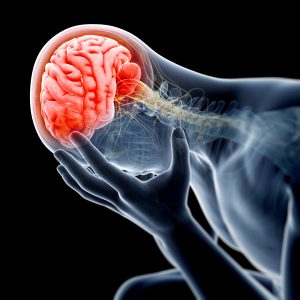Coaching for Brain Health
Concussions & Post-Concussion Syndrome
Have you or a loved one just had a concussion? Or been struggling with post-concussion syndrome for too long? I’ve been there. I know how frustrating it is to not be getting better. How scary it is when you don’t feel like yourself. And how challenging it is to advocate for yourself when your brain isn’t working right.
As a functional health coach, I empower you to regain control of your recovery. Together we can navigate treatment options and build your care team. We can work with your medical providers to develop a plan that addresses all aspects of your care. Your doctors and therapists may focus on retraining your brain, eyes, and vestibular system. We’ll look at how you breathe, what you eat, and how you move. Using the latest research, we will identify actionable steps that enable you to take charge of your health, one day at a time.
Brain Fog
“Brain fog” is a pretty common complaint these days. Many people just chalk it up to getting older and being too busy and distracted. But it’s not something you have to accept. If it’s negatively impacting your quality of life, there are actions you can take to get your brain back on track.
“Brain fog” is a very non-specific condition that has many potential causes. Things like lack of quality sleep, stress, poor gut health, undiagnosed food sensitivities, excess inflammation, underlying autoimmune disease, and exposure to heavy metals, mold, and other toxic substances can all lead to brain fog.
Working with a functional medicine practitioner can help you uncover the root cause(s) of your brain fog. A functional health coach can provide the support and accountability that enables you to implement your protocol and experiment with proven lifestyle changes so you can reclaim your memory, focus, and clarity.
Alzheimer’s Disease and Dementia
According to the CDC, an estimated 5.7 million Americans have Alzheimer’s disease, and that number is predicted to climb to a whopping 13.8 million by 2050. It’s currently the 6th leading cause of death for all adult Americans, and the cost of the disease is immense. In 2017 alone, the total amount paid for health care, long-term care, and hospice for people with Alzheimer’s and other dementias was estimated at $259 billion.
In addition to the healthcare costs, caring for a family member with Alzheimer’s disease or dementia can take a substantial emotional, financial, and physical toll on the health and well-being of the caregiver.
Just like the safety instructions on an airplane, it’s important to “put your oxygen mask on first, before assisting others.” Here are a few resources to help you learn more about the Functional Medicine approach to Alzheimer’s disease and find caregiver support:
- Dr. Dale Bredesen is a leading expert in the mechanisms of neurodegenerative disease. If you or a loved one are concerned about or already dealing with Alzheimer’s disease or cognitive decline, check out Dr. Bredesen’s books, The End of Alzheimer’s and The End of Alzheimer’s Program, and the ReCODE program.
- If you are a caregiver for someone with dementia or Alzheimer’s disease, find support. Consider working with a functional health coach, tapping into the resources provided by the Alzheimer’s Association or HFC, or seeking out other healthy forms of support in your community.
Finally, if you are concerned about your own personal risk for developing Alzheimer’s disease, there is so much you can do! Genetics are only a small part of the equation. The more we learn about Alzheimer’s disease, the better we understand how the things we can control – like our diets, lifestyle choices, and environmental factors (including exposure to toxins and mold) – impact our our risk for developing the disease. To learn more, you can read Dr. Bredesen’s books, explore the PreCODE program, listen to Dr. Peter Attia’s interview with Lauren Miller Rogan and neurologist Dr. Richard Isaacson, or check out the free brain health resources from HFC.
Blog Posts – Concussion & Brain Health
Are You Breathing Well at Night? 5 Common Myths About Sleep-Disordered Breathing
Sleep is an important pillar of health. Yet, according to the CDC, one third of US adults report that they are not getting the recommended 7 hours of sleep per 24-hour period. And that’s just counting the number of hours, not the quality of sleep during those hours! While there are several factors that can…
Read More … Are You Breathing Well at Night? 5 Common Myths About Sleep-Disordered Breathing
How To Reduce EMF Exposure: Four Easy Ways to Protect Yourself from Electromagnetic Fields
Are you concerned about the impact that constant exposure to electromagnetic fields (EMFs) has on your health? Are you wondering how to reduce your EMF exposure while still using a cell phone, computer, and the internet? EMFs can be a scary topic – they aren’t something we can visually “see”, most people can’t “feel” them,…
Do You Have a Broken Brain?
… You Can Help It Heal! Thanks to Norman Doidge’s amazing book, The Brain that Changes Itself, we know about the power of neuroplasticity, and the ability for injured brains to heal. And as the research in this area continues to grow, we’re learning more and more about the factors outside of our brains that…




